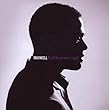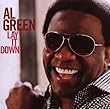 Language is used here as talisman – a means for escaping the ugliness of the present into something bigger and, if not better, more powerful. Rhythm and alliteration are used expertly, to create partial rhymes and a song-like metre that mirrors meaning.
Language is used here as talisman – a means for escaping the ugliness of the present into something bigger and, if not better, more powerful. Rhythm and alliteration are used expertly, to create partial rhymes and a song-like metre that mirrors meaning.
A review of Corn Flakes with John Lennon by Robert Hilburn
 Hilburn does have the special gift of getting behind the glitz and glamour of these famous stars and merely starting conversations with the person. He says in several places throughout the book that he was often assigned interviews at the last minute at the artist’s request, and rather than conduct a proper interview with microphones or tape recorders, he and the artist simply had a conversation, Hilburn jotting down notes and important quotes as they talked.
Hilburn does have the special gift of getting behind the glitz and glamour of these famous stars and merely starting conversations with the person. He says in several places throughout the book that he was often assigned interviews at the last minute at the artist’s request, and rather than conduct a proper interview with microphones or tape recorders, he and the artist simply had a conversation, Hilburn jotting down notes and important quotes as they talked.
A review of The $21 Challenge by Fiona Lippey and Jackie Gower
 It isn’t so much about making do with less, as about how best to use what you’ve got and driving your spending by a well thought through process of planned expenditure. Don’t expect any new age claptrap here though. Instead, Lippey and Gower have created a very practical, fun, cartoon rich book that will appeal to just about anyone and will add value to any household whether it’s used as an occasional tool to save up for something or as the start to a major life-change.
It isn’t so much about making do with less, as about how best to use what you’ve got and driving your spending by a well thought through process of planned expenditure. Don’t expect any new age claptrap here though. Instead, Lippey and Gower have created a very practical, fun, cartoon rich book that will appeal to just about anyone and will add value to any household whether it’s used as an occasional tool to save up for something or as the start to a major life-change.
A review of Small Poisons by Catherine Edmunds
 There are so many subtle parallels, transitions, symbols, and correspondences in this wonderful, rich novel. Edmund’s lighthearted romp creates a powerful impression of deep meaning, but the work is so funny and, at times, absurd, that you can’t help enjoying yourself.
There are so many subtle parallels, transitions, symbols, and correspondences in this wonderful, rich novel. Edmund’s lighthearted romp creates a powerful impression of deep meaning, but the work is so funny and, at times, absurd, that you can’t help enjoying yourself.
Goddess, Artist, Woman: Mariah Carey’s Memoirs of an Imperfect Angel and #1s
 Hip-hop promotes aggressive attitudes and beats and rhetorical and rhyming speech, and the biracial Mariah Carey’s persona—visually wearing the short, tight clothes of a youthful fantasy; and vocally using the intonation of a rough girl—sometimes seems that of the tender-tough moll of a money-making neighborhood thug rather than the eloquent, fashion couture-wearing incarnation of a first-rate international performer, for whom sophistication of various kinds is an inevitability.
Hip-hop promotes aggressive attitudes and beats and rhetorical and rhyming speech, and the biracial Mariah Carey’s persona—visually wearing the short, tight clothes of a youthful fantasy; and vocally using the intonation of a rough girl—sometimes seems that of the tender-tough moll of a money-making neighborhood thug rather than the eloquent, fashion couture-wearing incarnation of a first-rate international performer, for whom sophistication of various kinds is an inevitability.
The Romance of the Masculine: Maxwell’s BLACKsummers’ Night and Unplugged
 On the nine-song set of songs BLACKsummers’ Night by Maxwell, in the fast-paced song “Help Somebody,” Maxwell takes a hard look at self and the need to be a better, more generous and peaceful person; and in a lyric that moves into more speculative territory, he declares, “If you see the future, ask it if I’m there.” One imagines Maxwell will be part of the future as he has been part of the past. I hope that.
On the nine-song set of songs BLACKsummers’ Night by Maxwell, in the fast-paced song “Help Somebody,” Maxwell takes a hard look at self and the need to be a better, more generous and peaceful person; and in a lyric that moves into more speculative territory, he declares, “If you see the future, ask it if I’m there.” One imagines Maxwell will be part of the future as he has been part of the past. I hope that.
Heritage and Passion: Al Green’s Lay It Down
 It is not always easy to predict the artists who will be seen as important to an art form or culture: it takes years for us to live with art, years for the art to pass the rigors of personal mood and public questions, leaving some artists forgotten and others raised up. Whether singing of love and sex or spirituality, Al Green is important.
It is not always easy to predict the artists who will be seen as important to an art form or culture: it takes years for us to live with art, years for the art to pass the rigors of personal mood and public questions, leaving some artists forgotten and others raised up. Whether singing of love and sex or spirituality, Al Green is important.
A review of The Infinities by John Banville
 The gods envy the mortals because they exist. The beauty of humanity is in the everyday, limited action morality that involves eating, using the toilet, copulating (human to human, regardless of the guise), bleeding, feeling pain, giving birth, and above all, dying. This is the underlying celebration of the novel: the beauty of flawed humanity amidst the bodiless, bloodless gods.
The gods envy the mortals because they exist. The beauty of humanity is in the everyday, limited action morality that involves eating, using the toilet, copulating (human to human, regardless of the guise), bleeding, feeling pain, giving birth, and above all, dying. This is the underlying celebration of the novel: the beauty of flawed humanity amidst the bodiless, bloodless gods.
An interview with Kristin Bair O’Keeffe
 Kristin Bair O’Keeffe talks about her novel Thirsty, about her life in China and why she’s there, her publisher, on the craziness and creativity, of promoting a novel cross-country, on why she’s sending her resume to Cirque du Soleil, and lots more.
Kristin Bair O’Keeffe talks about her novel Thirsty, about her life in China and why she’s there, her publisher, on the craziness and creativity, of promoting a novel cross-country, on why she’s sending her resume to Cirque du Soleil, and lots more.
A review of Since the Accident by Jen Craig
 Since the Accident is a complex story masquerading as a ‘what happened then’ narrative, as it minutely examines the psychological fallout of being raised by a narcissistic mother. These women find it difficult to trust their own desires and perceptions, and are not allowed to truly be themselves, instead being undermined by the very people who are supposed to love them.
Since the Accident is a complex story masquerading as a ‘what happened then’ narrative, as it minutely examines the psychological fallout of being raised by a narcissistic mother. These women find it difficult to trust their own desires and perceptions, and are not allowed to truly be themselves, instead being undermined by the very people who are supposed to love them.